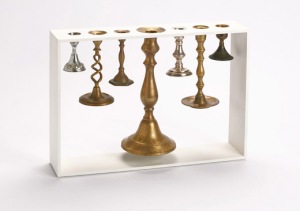Would you believe that right after I posted about receiving no calls, my phone rang? Now, they didn’t tell me I was amazing and they had to have me; they only called me back because of the borrowed respectability of DD’s reference, a good friend from college who works there now and kindly put in a good word for me.
Today I went in for an interview. A four and half hour interview. I actually really enjoyed the whole thing, although I did require a nap after fighting traffic home. I’ll probably gush about the company in a later post, (perhaps after I hear back from them. . . ) but for now I want to talk about other things.
In the car, I listened to a segment on Lawyer’s Guild about one of California’s Ballot initiatives, namely Prop 32. It’s been campaigned as “Stop Special Interest Money Now!” but callers on the show suggested that rather than stopping special interest money, the legislation would only take away power from the unions to efficiently gather money from workers to support campaigns and give a voice to workers. Now, I don’t feel entirely clear on how giving money to a campaign gives a voice to the giver, I don’t think democracy should mean paying to have a say, but apparently it does. And this legislation keeps unions and corporations from giving directly from the institution, but doesn’t keep owners of corporations from taking their share of the profits and then giving millions as a private citizen. The callers suggested that if this law were in place when folks were campaigning for 40 hour work weeks and other rights for workers, those laws wouldn’t have been passed.
Biblically, should we care about this?
For other reasons, I was reading this passage in Deuteronomy today. Chapter 24, 14-22
“You are not to exploit a hired worker who is poor and needy, whether one of your brothers or a foreigner living in your land in your town. You are to pay him his wages the day he earns them, before sunset; for he is poor and looks forward to being paid. Otherwise he will cry out against you to YHVH, and it will be your sin. Fathers are not to be executed for the children, nor are children to be executed for the fathers; every person will be executed for his own sin. You are not to deprive the foreigner or the orphan of the justice which is his due, and you are not to take a widow’s clothing as collateral for a loan. Rather, remember that you were a slave in Egypt; and YHVH your God redeemed you from there. That is why I am ordering you to do this. When harvesting the grain in your field, if you forgot a sheaf of grain there, you are not to go back and get it; it will remain there for the foreigner, the orphan and the widow, so that YHVH your God will bless you in all the work you do. When you beat your olive tree, you are not to go back over the branches again; the olives that are left will be for the foreigner, the orphan and the widow. When you gather the grapes from your vineyard, you are not to return and pick grapes a second time; what is left will be for the foreigner, the orphan and the widow. Remember that you were a slave in the land of Egypt. That is why I am ordering you to do this.”
I think the rule in America is you must pay every two weeks. But this passage calls us to pay wages daily. Whether we follow this specific or not, the call that we are not to take advantage of workers is clear, and we have a responsibility to care for not only our neighbors, but “foreigners living in our land or town,” to see that they are treated fairly rather than exploited. Making this happen is very complex in our enormous and confusing system, and preserving a diversity of voices in government is a big part of legislating protection for poor or immigrant workers. If you’re voting in California, look into this and other initiatives at http://ballotpedia.org/
Going back to the passage, it continues to talk about Reaping and Gleaning. When my mind wanders, I think about this concept and am fascinated by the repetitive admonition not to harvest every last bit from the fields. What does that look like in the modern day, when most of us aren’t very connected to farms?
I imagine that with cash, you could see change as a way to connect to this idea. For any purchase you make, less than a dollar comes back in coin. If someone asks for money, giving them the change in your pocket is like leaving the edges of field. (Kind of.) Now that I swipe for everything, I don’t often have change. I’m trying to figure out where in my life I can leave grapes so that they can be eaten by others.
An interesting project on kickstarter this week is The Gleanery, a group in Putnam, VT who has built relationships with farmers to take their unsold produce, which might otherwise become compost, and help it find mouths. “We are looking to purchase a commercial dehydrator, freezer, prep tables, smoker, pressure canner, food processor, and an ice cream maker: the tools of Gleaners,” their campaign explains. These aren’t the tools of the biblical Gleaners, who probably took as much as they could carry, likely enough for that day. . . but in the modern complexity of food systems, I would like to support an effort that works locally within a community to keep good food from going to waste, and feeding people in a way that is so much better than slopping “food” out of Sysco buckets onto plates, the way many camps, cheap restaurants, and soup kitchens do.
What do you think?






